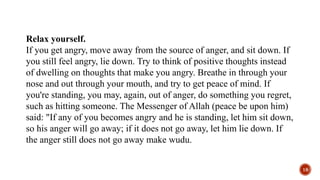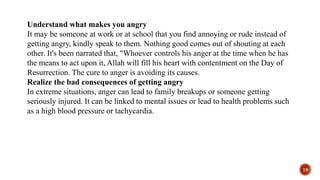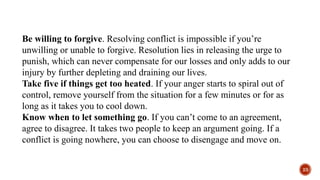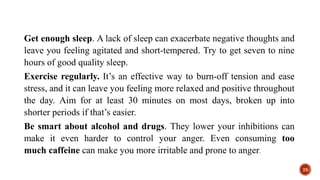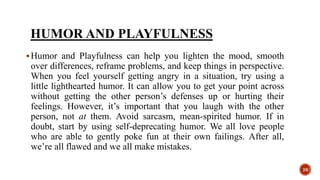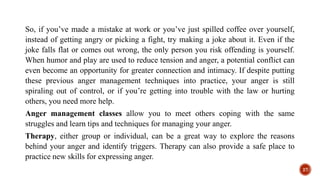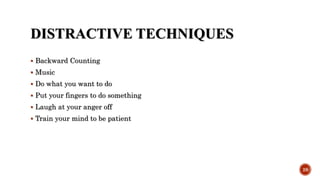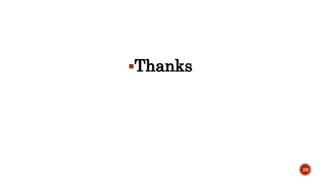This document discusses different types of anger and provides strategies for managing anger based on Islamic teachings. It identifies 10 types of anger including passive, volatile, fear-based, and frustration-based anger. It also outlines physical warning signs of anger, common triggers, and negative thought patterns that can fuel anger. The document recommends seeking refuge in Allah, keeping silent when angry, relaxing, understanding anger triggers, and finding healthier ways to express anger such as focusing on relationships, forgiving others, and disengaging if a conflict is unresolvable. Stress management techniques like exercise, sleep, and avoiding excess alcohol are also suggested for staying calm.


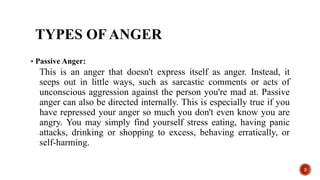
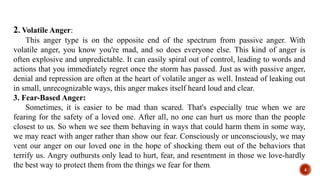
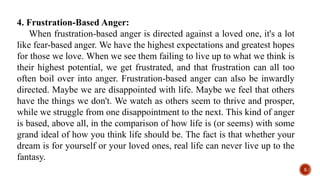
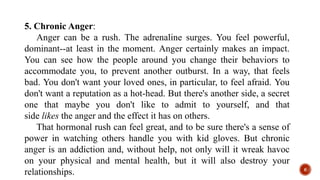
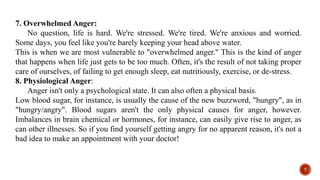
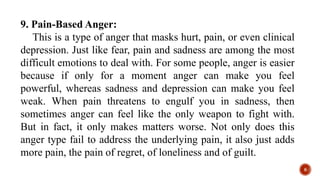
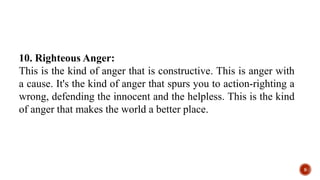
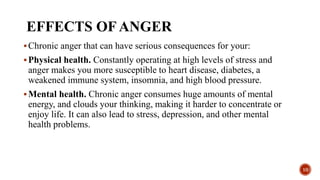

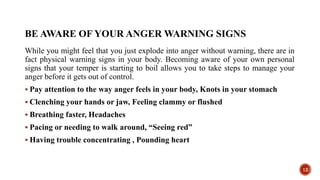
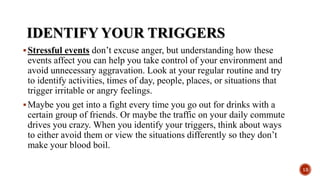
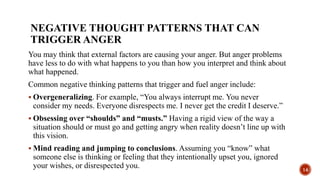
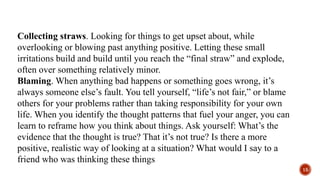
![HOW TO CONTROLANGER IN ISLAM
Seek refuge in Allah. This is the simplest way to control your anger. Whenever
you feel angry, sit down, and seek refuge in Allah from Shaytaan. Have a drink of
water, and relax; don't get tense or stressed out. The Prophet (peace be upon him)
said, "If a man gets angry and says, ‘I seek refuge with Allah,’ [and] his anger will
go away."Sulayman ibn Sard said: "I was sitting with the Prophet, and two men
were slandering one another. One of them was red in the face, and the veins on his
neck were standing out. The Prophet said, ‘I know a word which, if he were to say
it, what he feels would go away. If he said "I seek refuge with Allah from the
Shaytaan," what he feels would go away.
16](https://image.slidesharecdn.com/angermanagement-220219003155/85/Anger-management-Techniques-16-320.jpg)

